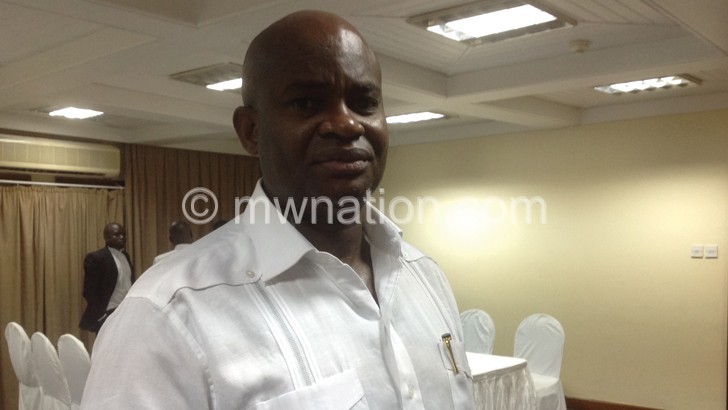Public finance management laws weak—lawyer
Professor Dan Kuwali, an international law expert, says Malawi’s public finance management laws are impressive on paper but not formidable because of loopholes that promote abuse of public resources.
Kuwali, a Brigadier General in the Malawi Defence Force, made the observation on Saturday night in Mzuzu when he delivered a public lecture on Public Purse: Use, Misuse and Abuse of Government Resources under the auspices of the Malawi Law Society (MLS).
He observed that while the law relating to public finance management is primarily provided in the Public Finance Act (PFA) of 2003 and the Public Audit Act, Malawi also has other laws such as the Public Procurement Act and Corrupt Practices Act.

But Kuwali, who also teaches international law at the University of Pretoria in South Africa, said revelations of plunder of public resources through Cashgate exposed in 2013 provide evidence of the need to seriously look at management of public finances in the country.
Highlighting the loopholes in the available laws, he noted that the PFA does not have a provision that makes it imperative to report on expenditure for the previous financial year before budget estimates are presented and considered by the National Assembly.
This arrangement, he argued, is a loophole as government ministries, departments and agencies (MDAs) do not have an obligation to report on the expenditure before requesting for more resources for the upcoming year.
Further, he noted that although Section 83(6) of the PFA requires publication of summarised financial statements in the Gazette or newspapers, it remains rare to see government financial statements published in the newspapers.
Kuwali, who is also a fellow of Harvard Kennedy School of Government, also queried the Vote of Unforeseen Expenditure as provided for by the PFA, which is supposed to be approved by Cabinet but the law does not make it an obligation for authorities to account for the expenditure. He said this makes the funds prone to abuse.
Besides the legal challenges, he also discussed a number of institutional shortcomings in the drive.
For example, while acknowledging the work that the Public Accounts Committee (PAC) of Parliament does, Kuwali said the committee needs information and acumen to effectively fulfill its oversight function.
He said: “There is still a backlog of external audits. Currently, PAC is scrutinising accounts as far back as 2013 at the time when controlling officers responsible either have left the MDAs in question or have retired from the public service.
“Further, there are still weaknesses in the actions and follow up based on recommendations of the National Audit Office [NAO] and PAC. In respect of Parliament’s Budget and Finance Committee, there is more opportunity for scrutiny of the draft budget than for budget execution.”
As part of solutions, Kuwali called for the need to respect certain principles in the implementation of the national budget, like the budget being approved by the Legislature prior to implementation.
He said: “A well-functioning public finance management system must have clear rules on transparency and reporting, as well as enforceable sanctions for failure.”
MLS executive director Tiwonge Kayira urged people in the country to make use of the information while rights activist Moses Mkandawire lamented the deep rooted culture of corruption in the country.
MLS is scheduled to host another public lecture, focusing on injunctions, in Lilongwe this Thursday. It will be presented by Marshal Chilenga.
In recent years, Malawi has registered rising cases of abuse of public funds, according to various audit queries, including some reported by the National Audit Office. n





